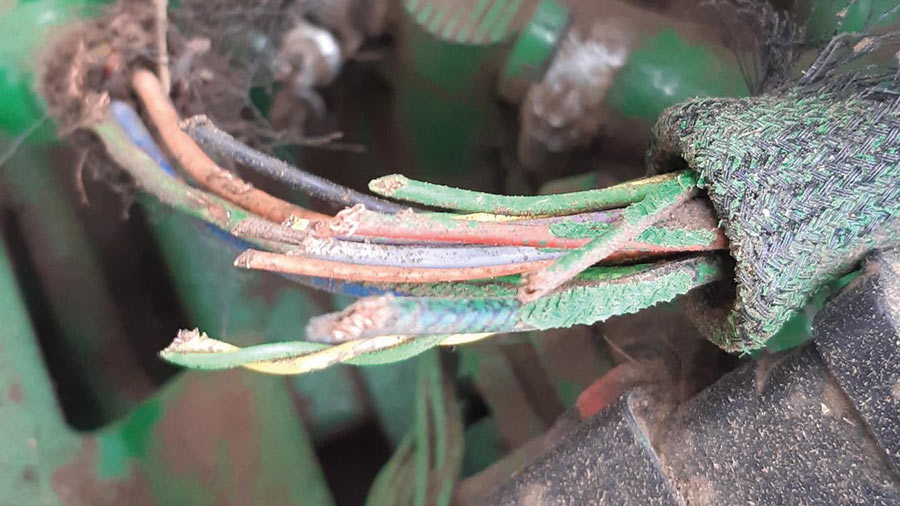How to avoid costly claims for rodent damage to machinery
 © Ben Burgess
© Ben Burgess Damage to stored machinery and equipment caused by rodents can be very costly.
Individual insurance claims in excess of £20,000 are not unusual, and if insurance doesn’t cover rodent damage, the cost will fall to the farmer.
We spoke to Nigel Wellings, director of Acres Insurance Brokers, for advice on insurance coverage and how to best avoid machinery becoming infested with mice or rats.
See also: Safest options for changing wheels and jacking machinery
Machinery damage
Tractors, combines, sprayers and other equipment have become more complex and are increasingly fitted with sophisticated electronic systems.
The systems rely on extensive wiring looms to connect digital and electronic controls and data monitors, to which rats and mice can cause havoc.
The precise location of the damage can be difficult to trace and it can take hours for specialist technicians to isolate the site.
The downtime adds to costs with lost work and missed weather windows, particularly when the equipment is only started up when it is required.
However, damage claims are not confined to machines stored for long periods over the autumn and winter.
Tractors and equipment parked up for 24 hours or over a weekend have also been affected.
Insurance policy coverage
Aside from checking that machinery is protected from vermin attack, farmers should ensure rodent damage is covered under insurance policies.
Vermin cover is generally included on most tractor policies where comprehensive cover is given on the vehicle and for attached or detached implements.
Value limits are placed on damage to implements, so it is also worth checking the equipment is covered adequately.
Claim prevention pointers
Thorough cleaning
Cleaning machines such as combines and seed drills thoroughly before putting them away is key.
Grain and seed lodged in combines and implements will attract vermin.
This and other materials, such as straw, dried grass or plant matter that might make rodent nesting sites, should be removed.
Likewise, equipment with wiring, such as control boxes, should be taken off and stored safely in the workshop.
Deter rodents
It is worth considering anything that might deter rodents, such as undoing the covers on elevators, so it is less easy for vermin to hide away and nest.
A farmer client of Acres Insurance Brokers, who had made several claims, finally won the battle against the rodents by using electrified sheep netting. The netting was placed around a combine and this proved effective.
Regular checks
Machines should be checked regularly for signs of rodent activity and started up and moved once a month during the autumn and winter to dislodge nesting vermin.
While the main damage is to wiring, other areas are vulnerable, too.
There have been claims made for damage to fluted rollers in the metering mechanism on drills and tractor cab roofs being ruined.
With combines, it is worth checking the header, attaching it and engaging the drives well before harvest to avoid finding out it won’t work just when it is needed most, said Mr Wellings.
One claim last summer was for a fully serviced combine that was ready to go prior to harvest.
But the header was only fitted the day before harvest was due to start and its controls failed due to vermin damage to the wiring.
Add machinery to vermin control plans
A farm’s vermin control plan often only concentrates on areas such as grain and feed stores, while damage prevention to expensive machinery is overlooked.
Speak to rodent control specialists and ask them to site bait to protect equipment as well as stored crops or feed, Mr Wellings suggested.
More resources
- Download the Code of Best Practice for the use of rodenticides
- AHDB Rodent Strategy Guide (PDF)
- FWi A guide to kit for controlling rats, mice and squirrels
- FWi How to keep grain-spoiling rodents out of your grain store
- FWi Guide to managing rats on your farm
- FWi Expert advice for preventing vermin issues on poultry farms

